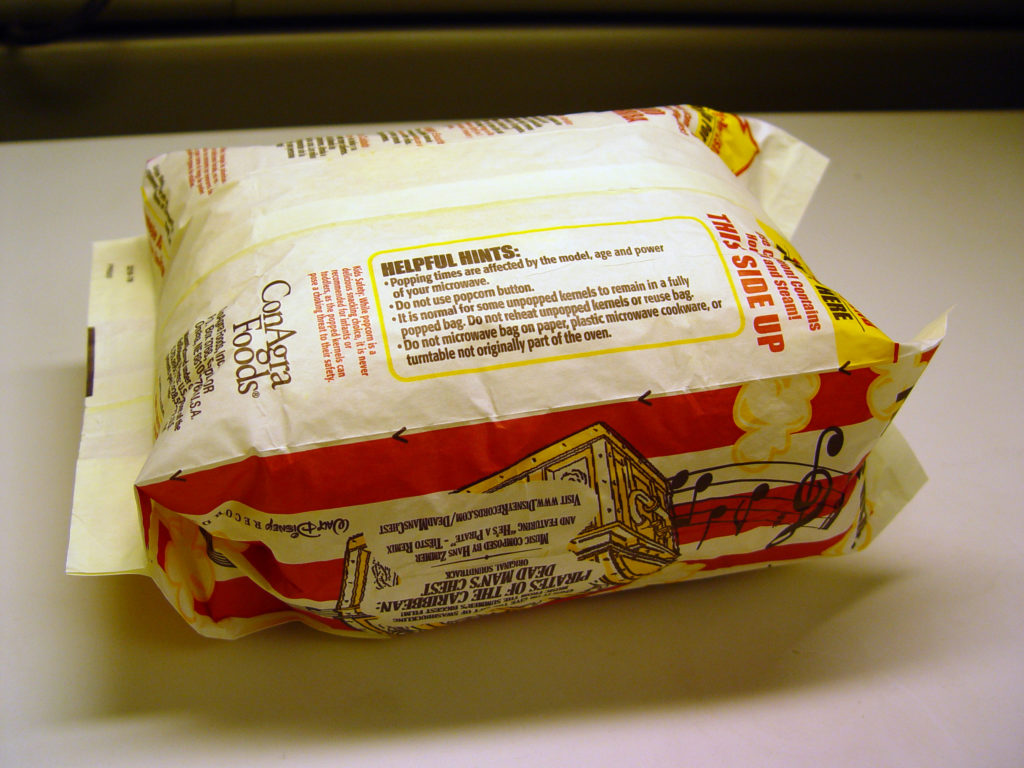A new study by the Environmental Working Group shows that chemicals closely related to PFOA, the toxic chemical that contaminated water in Bennington, are still used in some food wrappers.
Since PFOA was banned from food contact substances, industry has shifted to coat food wrappers with similar chemicals with slightly different chemical structures, which are intended to pass through our bodies more quickly. However, many scientists believe these replacements present the same dangers exhibited by longer chain chemicals like PFOA – like endocrine disruption, reduced immune function, and potential links to certain cancers.
These chemicals, broadly known as Perfluorinated chemicals, or PFCs, and also referred to as PFASs, were found in food contact wrappers like microwave popcorn bags, pizza boxes, and paper wrappers, as well as consumer products like dental floss. The EWG study found that about 1/3 of the tested wrappers contained Fluorine, a positive indicators of PFCs. Upon further testing, they found that a large majority did contain PFCs.
The good news is that 2/3 of all wrappers did not contain these chemicals, indicating that safer options exist and are prevalent in the market. For example, manufacturers in Denmark found an easy solution to manufacturing microwave popcorn bags without PFASs, driven by a Danish food retailer.

